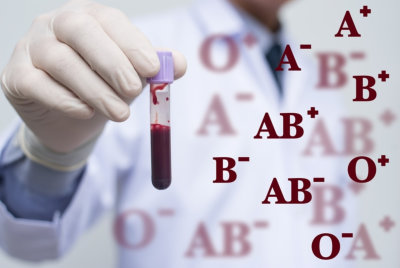How your blood type may be an indicator of COVID-19 severity
Recent rampant studies regarding COVID-19 suggest that the disease more closely mirrors a vascular infection rather than a respiratory one, as originally thought. An impairment in blood circulation seems to be the common denominator in COVID-19 symptoms, where 40% of deaths from the virus are related to cardiovascular complications. Consequently, extensive research regarding the effects of having certain blood types on COVID-19 risks and outcomes has emerged. Many studies from Europe and China indicate that those with type O blood may be protected from COVID-19 infection, whereas those with type A blood may be at a higher risk.

Why Knowing Your Blood Type Is Important
A person’s blood type is determined by the presence or absence of specific antigens—A and B— which are molecules on red blood cells that trigger an immune response. A person with Type A blood has the A antigen on red cells and a B antibody in their plasma; a person with Type B has the B antigen on red cells and A antibodies in their plasma. Individuals with Type AB have both A and B antigens on their red cells, but neither antibody in their plasma, and those with Type O have neither A nor B antigens on their red cells, but both antibodies are present in their plasma.
A team of European researchers found that people with type O blood had a 35% decreased risk of developing severe COVID-19 illness, while people with type A blood had a 45% increased risk of contracting COVID-19 and developing respiratory failure, when compared to those with other blood types.
Although the reasoning behind these trends are not exactly clear, having both of the circulating A and B antibodies modifies the immune response and is a possible explanation for why people with Type O blood may be more equipped to identify foreign proteins, including those on the surface of COVID-19. Another explanation is that perhaps the genes associated with blood type also have some effect on the ACE2 receptor, the protein that allows the SARS-CoV-2 virus to infect human cells.
Another study suggests that it may matter more whether people are Rh+ or Rh-, where those who are Rh- seeming to have less severe responses after contracting COVID-19.
How to Find Out Your Blood Type
The most reliable way to find out your blood type is by a getting a blood drawing at a clinic or doctor’s office. At Fusion Medical Care, we are partnered with specialty labs that can detect blood type, among other things related to your health.
We also offer same-day blood tests that detect COVID-19 antibodies, assessing whether you were previously infected with the virus and providing a glimpse into your immunity toward it.












